How to See Different Size Pictures on Google Images

Jimmy Westenberg / Android Authority
Google Photos may be one of the best online services for people who love taking lots of pictures and videos with their smartphones. It combines cloud-based storage with its AI-based organization of images and clips. With these features, it's a must for mobile photographers.
Read more: The best Google Photos alternatives
Let's take a quick look at how to get started using Google Photos, including a look at its major features and some tips that should make using the service easier for you.
What is Google Photos?

Jimmy Westenberg / Android Authority
The service officially launched in May 2015 as a standalone spin-off of sorts from Google+ Photos, which was based on the Google+ social network (Google would later retire Google+ Photos). It retained many of the features of the older Google+ Photos and added a few new ones.
The apps and the service were immediate hits with smartphone owners, hitting 500 million users by May 2017, two years after it launched. Those users upload 1.2 billion photos every day. In June 2017, the company announced Google Photos had reached over a billion app downloads. In June 2020, the app got a redesign, along with a slightly different logo.
You can download the app on both Android and iOS, and you can also go to the photos.google.com site to view your stored images and clips on a PC or mobile web browser.
What's the difference between Storage saver, Original Quality, and Express options in Google Photos?
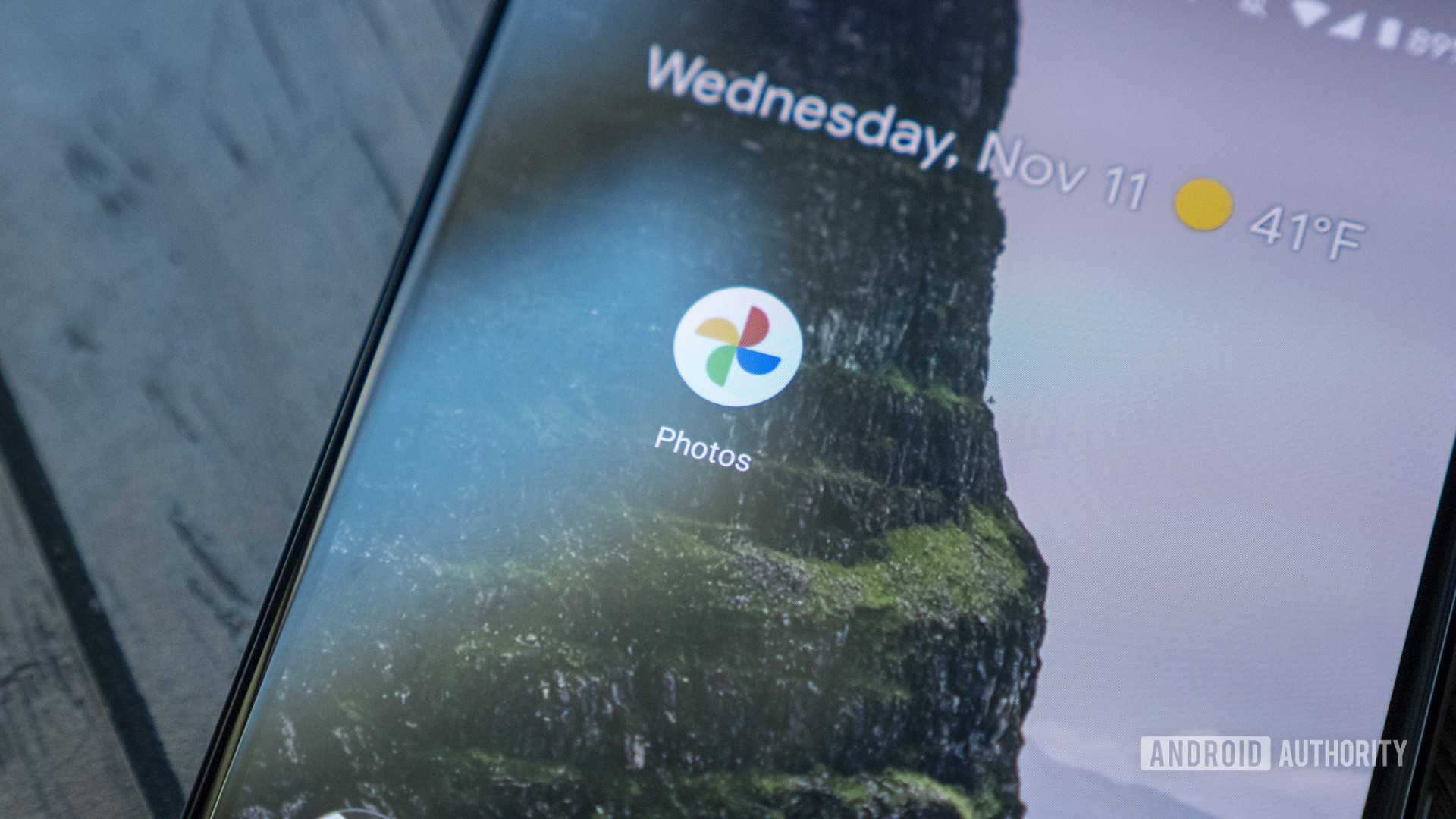
Jimmy Westenberg / Android Authority
The service has three storage settings to choose from. Let's go through all three now.
Storage saver
The "Storage saver" setting (previously known as "High Quality") is actually the middle pick of the three modes. It allows you to back up photos from your smartphone up to 16MP each or video clips at up to 1080p resolution to your Google Photos cloud account.
The following video formats are supported: mpg, .mod, .mmv, .tod, .wmv, .asf, .avi, .divx, .mov, .m4v, .3gp, .3g2, .mp4, .m2t, .m2ts, .mts, and .mkv. If you upload videos in other formats for Storage saver, including the popular RAW format, they will be counted as part of your Google One storage limits.
It used to be that you could upload an unlimited number of photos in those supported formats in Storage Saver mode for free. However, that feature has been eliminated as of June 1, 2021. Now, any new Storage saver photos uploaded via Google Photos will be counted as part of your 15GB free storage on Google One. Keep in mind that that's just for new photos uploaded on or after June 1. Any Storage saver photos uploaded before that date will not count on your Google One storage limit.
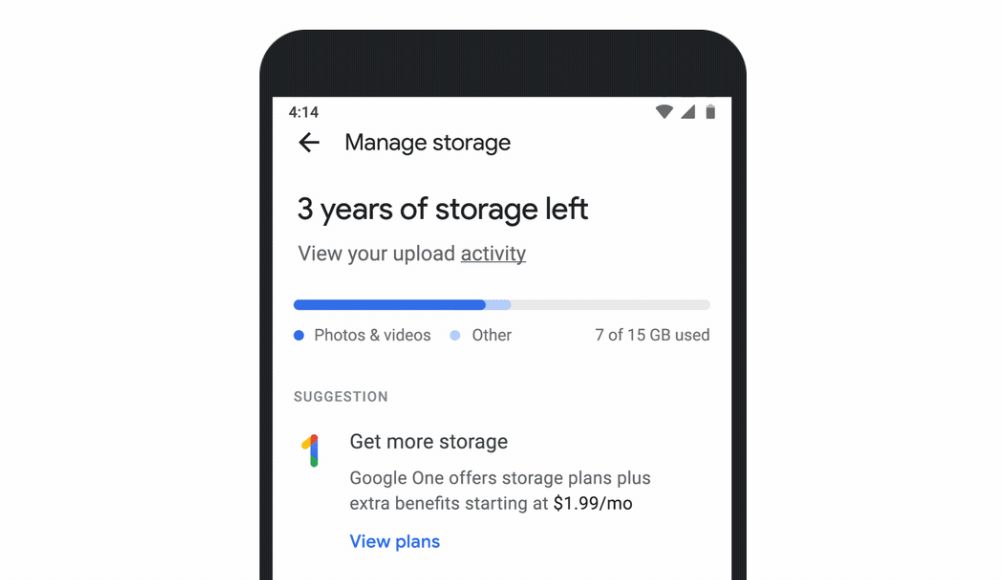
Also, starting on June 1, a new feature in Google Photos was added by the company. This photos and video management tool will point out any stored media you might want to get rid of. That might include photos that are too blurry or video clips that are just too large to keep in the new 15GB free limit.
Original Quality
The "Original Quality" setting for the service is the highest pick of the three modes. It will preserve the original quality, megapixels, and resolution of any photo or video you upload, which sometimes exceed the limits of the Storage saver setting. However, for most smartphones with Google Photos installed, there is an upper limit of cloud storage for the Original Quality setting. They will be stored on the user's Google One cloud account, and they will share storage space with the user's Google Drive documents and Gmail email messages.
The good news is that a set of smartphones can get around the storage limitations of the Original Quality setting in the service. If you still own the Pixel 2 or Pixel 2 XL, you can upload as many photos or videos as you want at the Original Quality setting until the end of 2021. After that timeframe, any new photos or videos you take with those phones will be compressed down to High-Quality resolution and megapixels for storage.
The Google Pixel 3 and Pixel 3 XL have a similar deal for Google Photos in terms of storage. Owners can upload as many photos and videos at the Original Quality setting on the service for free until January 31, 2022. After that, any more photos and videos users will be converted down to Storage saver settings.
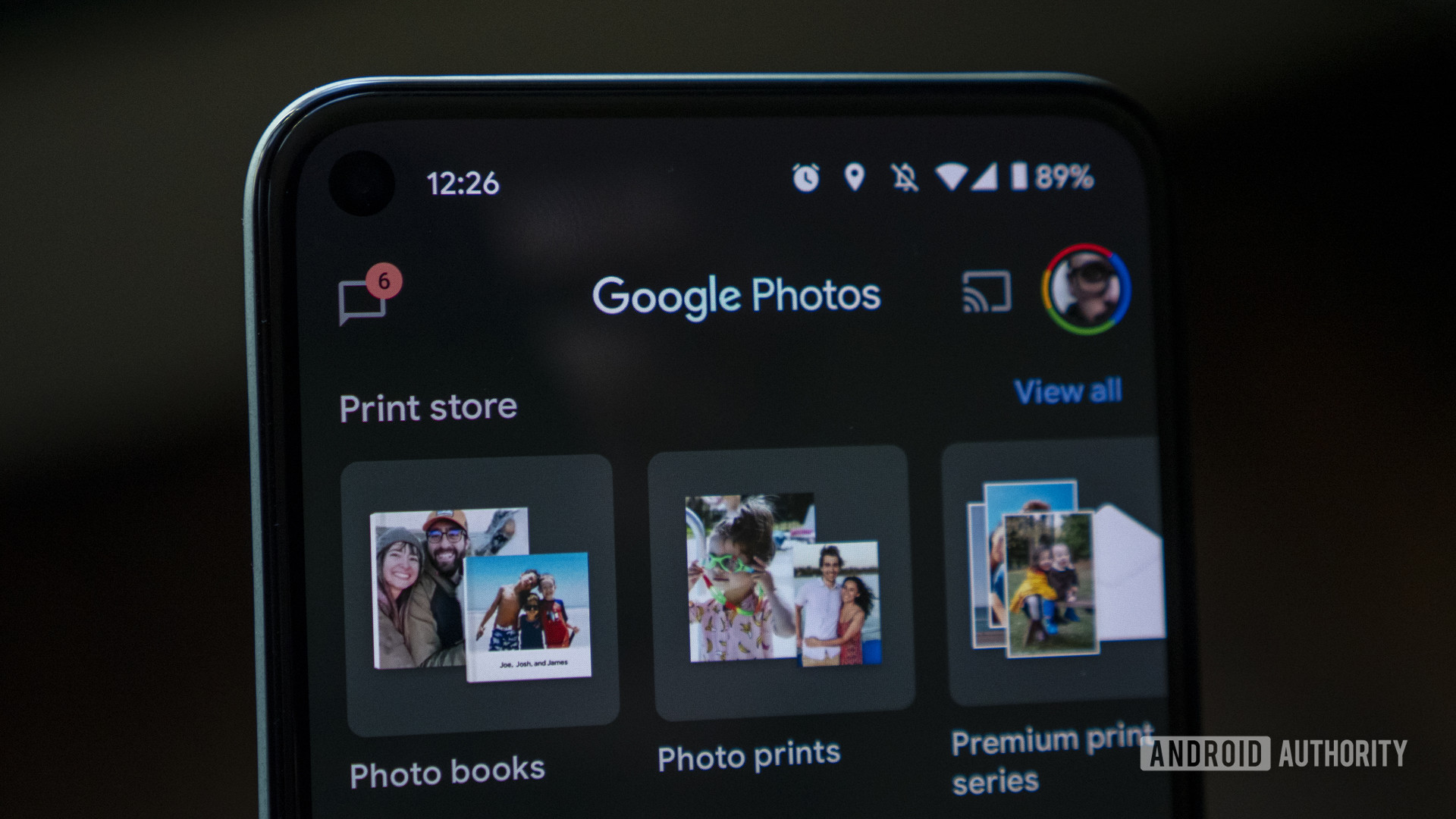
Jimmy Westenberg / Android Authority

For people in developing countries like India with limited data on their smartphone plans, Google Photos added an Express backup option for some users. This will compress any photo down to just 3MP before it is uploaded to the service, and videos are also cut down to the standard 480p definition. The Google Photos app also added the option to cap the amount of mobile data used by the app. Users can limit it to 5MB, 10MB, or 30MB, or they can choose for the service to not use any mobile data at all when uploading content. Keep in mind that this setting is available primarily in developing countries that don't have solid cellular wireless services. It is unlikely to be added to the US or other Western markets.
AI grouping of images into groups and albums

Google Photos also uses artificial intelligence and machine learning to identify items in your pictures. You can then place those items in their own groups and albums. If you take many photos of your dog with your smartphone, the service will see them and then group all those dog photos into one album on your app or the Google Photos website. In fact, an update in 2017 added the ability to identify the specific dog in the pictures when uploaded.
When you tap on the albums section of the Google Photos app, it shows you three categories on top to search for the image you want to find: People, Places, and Things. The People category shows images of faces, and the Places category shows locations based on geotagging information and identifying well-known landmarks in the photo. The Things category can show non-human subjects and photos and videos taken for specific events, like birthdays or vacations.
Photo books support in Google Photos

If you see a group of images in Google Photos and want to bring them into the physical world, the service lets you order Photo Books from your collected images. In fact, using AI, Google Photos arranges the book, adding the photos it think are best. Of course, you can still manually select which images go in the photobook as well. Pricing for these books begins at $9.99, and they can be ordered on the website and in the Google Photos apps.
Editing images in Google Photos
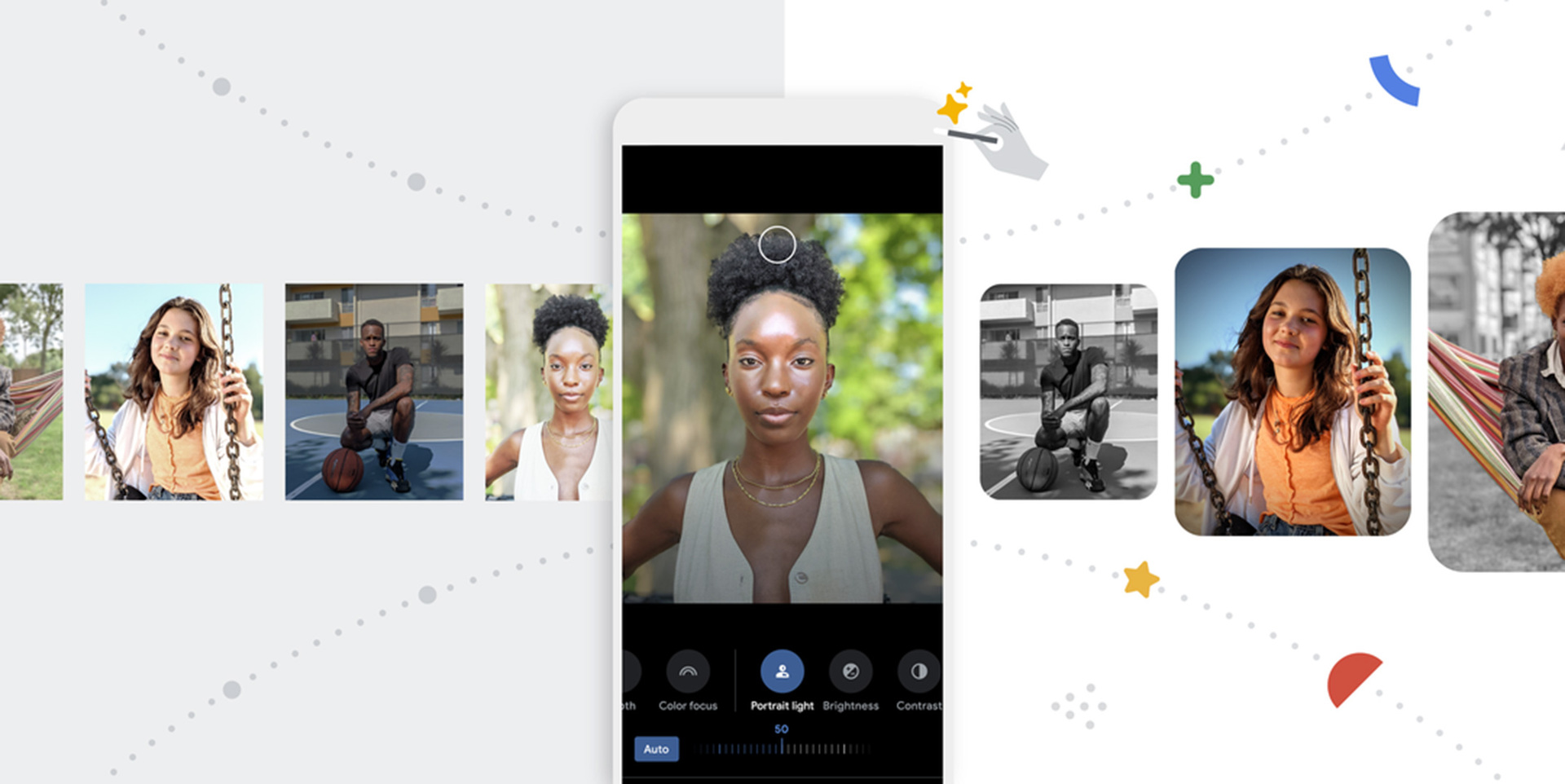
Google Photos also lets you edit your photos, either in the apps or on its website. An auto-selection allows the service to create what it believes is the best-looking version of that photo and many other filters you can select, like Vista, which turns color images into black and white photos.
Editing videos
The app recently added a video editor. Not only can you crop or trim footage from your video clips, but you can also add filters as well. The app will also allow you to adjust your lighting and exposure. Finally, the app includes some machine learning-based features that should make a difference in your final video.

Sharing Google Photos content with others

Another nice thing about Google Photos is you can actually share images you upload with others, even if they don't have the Google Photos app. All you have to do is select a photo, video, or album, tap on the Share icon in the app and type in who you want to share an album with. You can also type in a phone number or email address. Then type in a personal message if you want, and then tap on Send. Shared albums can support up to 20,000 total items. You can also use the Share feature to upload photos and videos to your social networking accounts like Facebook and Twitter.
What is Google Photos Assistant?

Google Photos Assistant (not to be confused with the Google Assistant AI digital helper) is designed to help you keep track of your photos and videos library. It will generate cards with suggestions on which photos of yours can be turned into collages, animations, and movies. It will even use machine learning to show you pictures in your account that you want to delete. Assistant will also offer notifications for alerts, like if you are using up your storage space.
Google Pixel 6 Magic Eraser feature
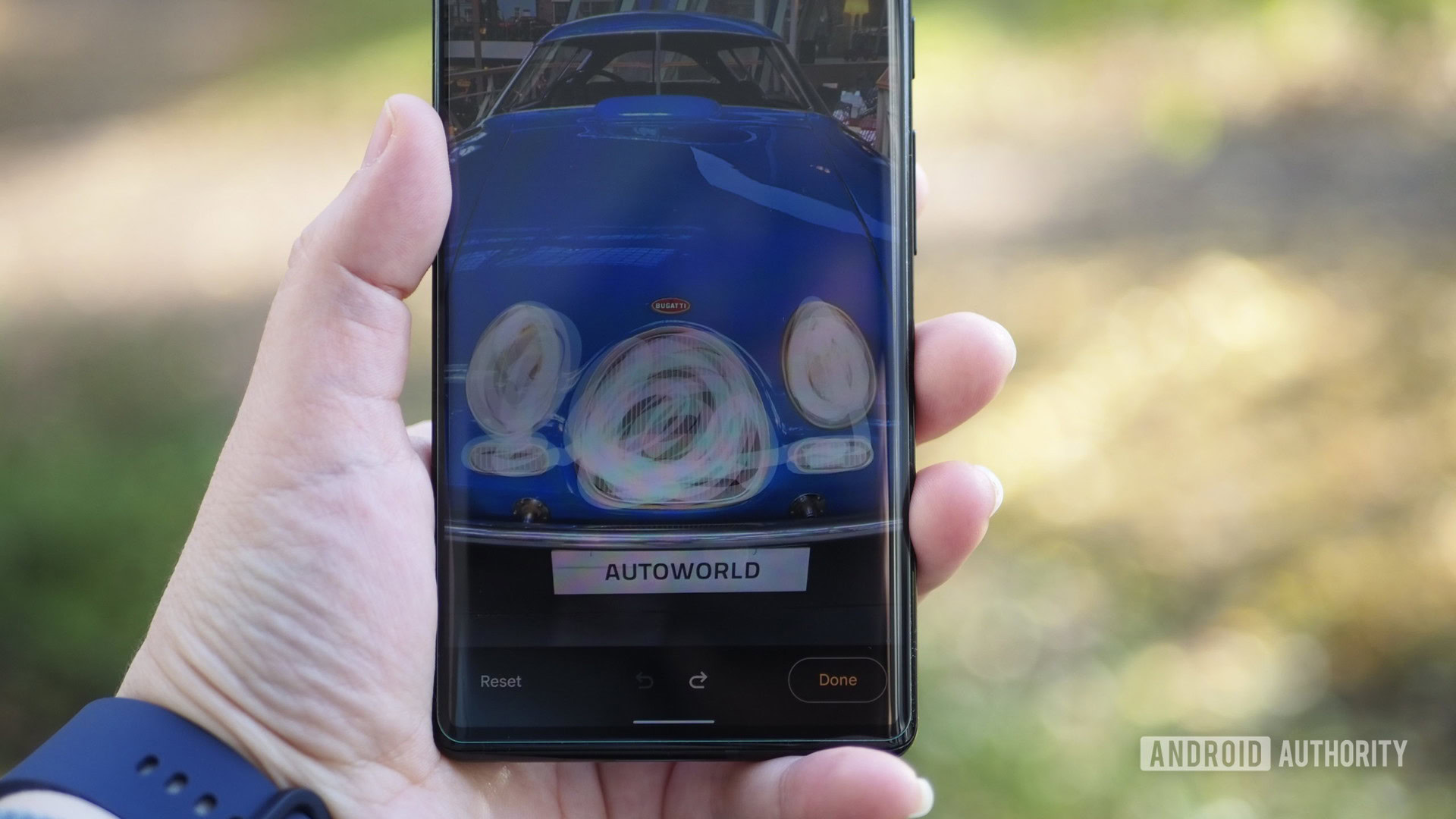
Rita El Khoury / Android Authority
If you own the new Pixel 6 or Pixel 6 Pro smartphone, there's a new Google Photos feature called Magic Eraser. It allows users to erase unwanted people or objects in their photos without having to use an external photo editor. It works pretty well, and it also works on any photo you have uploaded to Google Photos.
More tips and tricks
Here are some more tips and tricks you can try out while using Google Photos:
- Live Albums is a nice feature. Just make an album, select the people you want to see in that album, and Google Photos will automatically put pictures of those folks in that album.
- Another addition lets you see information about a specific photo, such as its date, its file size, and where it was taken, by just swiping up on that photo.
- You can automatically create movies from your Google Photos pictures by tapping on Assistant and then select Movie. You have 10 different categories to choose from, including Love Story, Selfie Movie, and Doggie Movie.
- If you share a photo or album with others on the service, they can now "like" images by tapping on a heart icon.
- There's a Color Pop feature that lets you keep the color on the subject of an image in Google Photos but then turns the background into black and white.
- A recent feature called Cinematic Photos allows you to create the illusion of depth in your standard 2D images.
- There's a new feature that lets you use saved images on your phone as live wallpaper. Those photos are cycled automatically through the home screen.
How to See Different Size Pictures on Google Images
Source: https://www.androidauthority.com/google-photos-937968/